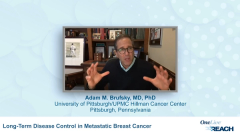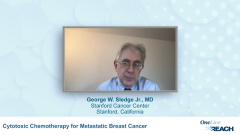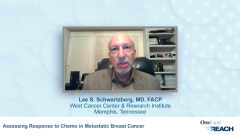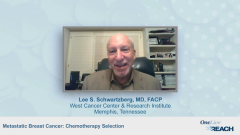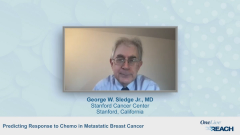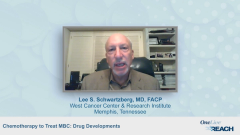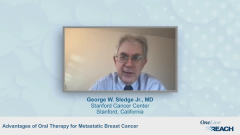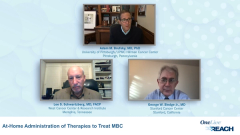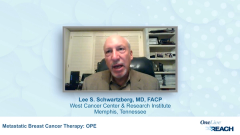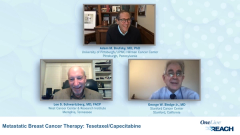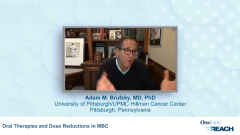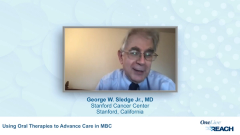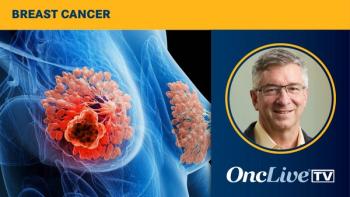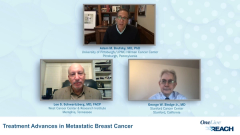
Treatment Advances in Metastatic Breast Cancer
Episodes in this series

Adam M. Brufsky, MD, PhD: Hello, and welcome to this AJMC®and OncLive® webcast titled, “The Role and Rationale for Oral Options in the Treatment of Metastatic Breast Cancer.” My name is Dr Adam Brufsky. I am a professor at the University of Pittsburgh School of Medicine, and I am a codirector of the comprehensive breast cancer center at UPMC [The University of Pittsburgh Medical Center] Hillman Cancer Center in Pittsburgh, Pennsylvania. Joining me for this 60-minute discussion are Dr Lee Schwartzberg, the chief medical officer of West Cancer Center in Memphis, Tennessee, and Dr George Sledge Jr., a medical oncologist at Stanford Women’s Cancer Center in Palo Alto, California.
Today we will explore the standards of care and unmet treatment needs associated with metastatic breast cancer, focusing on the role of chemotherapy. We will identify emerging chemotherapy options for metastatic breast cancer with an emphasis on the rationale for oral therapy. Finally, we will discuss the shift in treatment paradigm based on the use of oral oncolytics, including the impact of COVID-19 [coronavirus disease 2019] on the uptake. We will also discuss approaches to ensure successful treatment with such oral agents.
Let’s start with the beginning. We are here to talk about metastatic breast cancer, something that all of us have treated, and we have observed dramatic changes in how we do this. These are general questions but I will start with George. How have things changed since you started practicing metastatic breast cancer? You have been involved in just about everything that happened in this business in the last 35 to 40 years. I do not know if you can even encompass it in a statement, but if you could encompass this in any kind of way, how have things changed since we started many years ago?
George W. Sledge Jr., MD: Thanks, Adam. The biggest change is simply the tools we have available. During the first decade of my career, I became a brand-new assistant professor in 1983. During the first decade of my career, there were 0—I repeat, 0—new drugs approved by the FDA for the treatment of metastatic breast cancer. If you look at that in contrast to the last decade, there has been more than 1 new drug approved for the treatment of metastatic breast cancer per year. The sheer volume of what we have available to us has changed.
Secondly, above and beyond the volume of course, there is a huge profusion of new biology-based treatments. Most of the treatments that we had available to us 2 or 3 decades ago were relatively nonspecific agents. We had the first targeted therapy, which is to say endocrine therapy, in perhaps all of oncology, but beyond that, most of our agents were relatively nontargeted. It’s the profusion of new agents, and these new agents are incorporating what we have learned about the biology of breast cancer over the last 2 or 3 decades.
Transcript Edited for Clarity


